Effective Use of Musical Materials for Instrumental Music Teaching
A teacher faces a profound challenge in the determination of the main approaches to utilize in coaching students about instrumental music. In this case, it is essential to address the issue of necessary materials to use for training to enhance effective learning, efficient flow, and engagement between the instructor and the partisans. According to Julia et al. (2020), factors influencing an educator include motivation level, training methods, incorporation of tools during lessons, the building of communication through social media networks, and activation in scientific forums. The theoretical framework that fosters the affirmation of productive academics and acquisition of skills enshrine the optimal use of dynamic materials that empower both entities. Instrumental music studies are a multifaceted phenomenon that demands proficiency and the ultimate utilization of materials that ensure the efficacious attain of expertise among scholars.
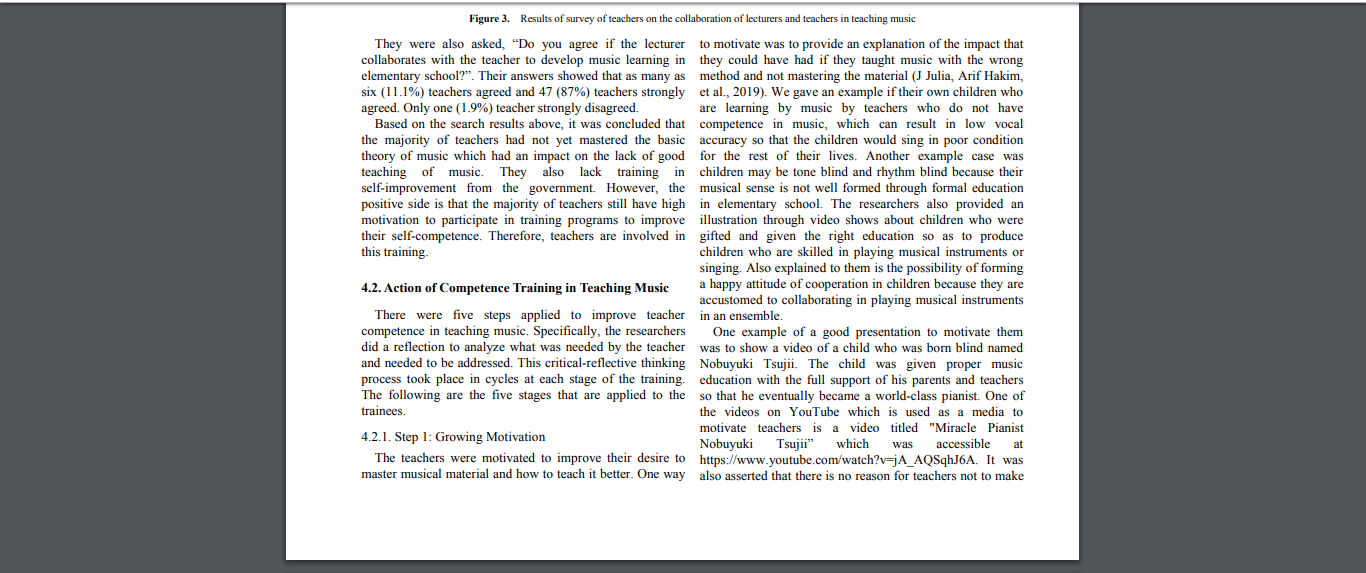
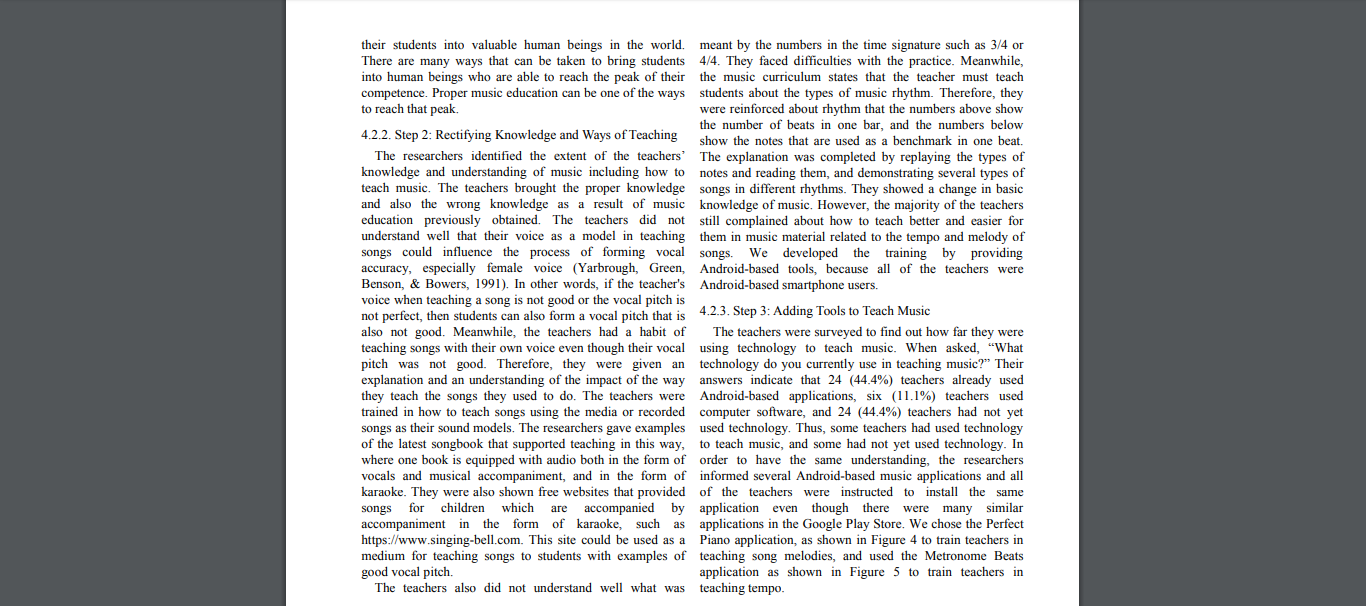
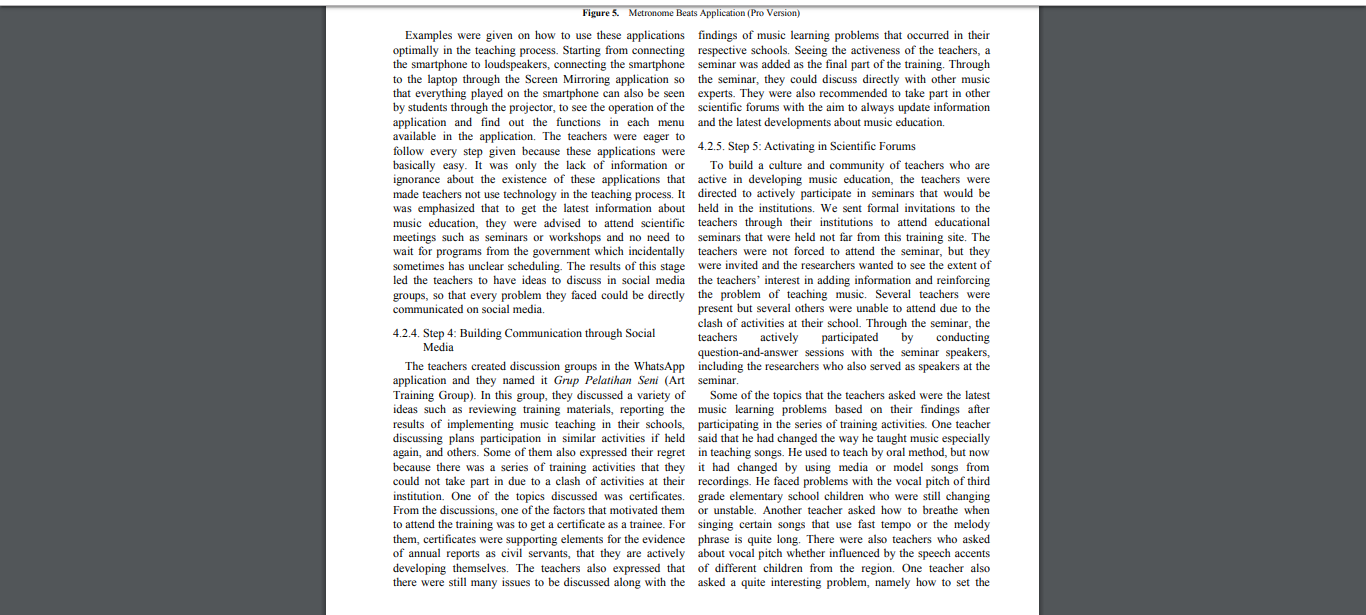
Over the decades, instrumental music has played a significant role in the composition of songs the meaning and relevance to the dynamic communities. In this case, it is crucial for a teacher to ensure effectiveness in the learning process to boost the expertise among students. Simones (2019) argues that a trainer’s behavior is a reflection of the cognitive level and emotional intelligence hence the prominence in addressing the main issue of fostering effectiveness in the scholarly activity. On the one hand, it is crucial for the instructor to show proficiency while coaching the students. On the other hand, the counterparts show coordination based on the form of practice used during the sessions.
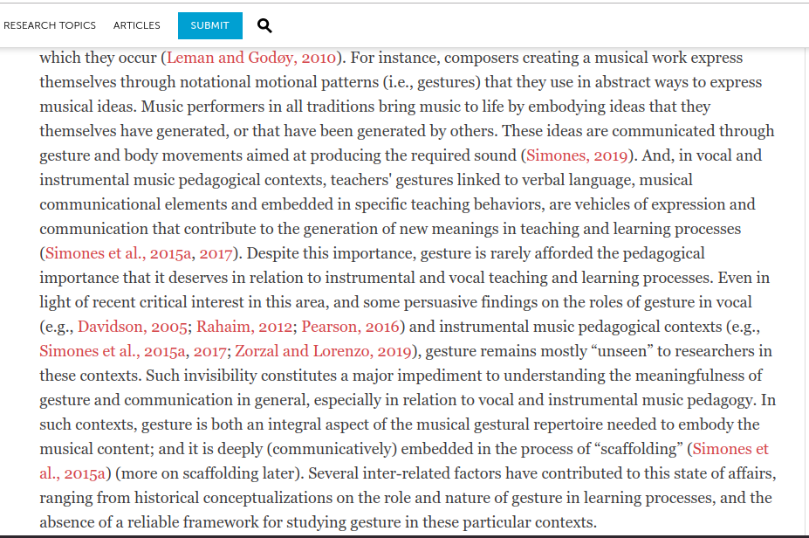
Musical performance and learning is a phenomenon that requires the integral use of dynamic approaches to ensure the optimal delivery and entertainment among the audience. Concina (2019) stipulates that the factor that drives the efficiency among the artists in the industry encompasses proficiency in the use of metacognition. It is a multifaceted phenomenon that enshrines the interplay of strategy, cognitive, motivational, and emotional. Professionalism in the music industry demands the integral use of all the variables of metacognition to efficiently deliver to people and attain popularity. However, Concina (2019) further depicts that the key factor towards promoting effective training among individuals involves the exploitation of the metacognitive aspects among the teachers while steering the relationship with the students. In this case, both parties efficiently exchange knowledge, skills, and expertise within the creation of songs and the management of shows.
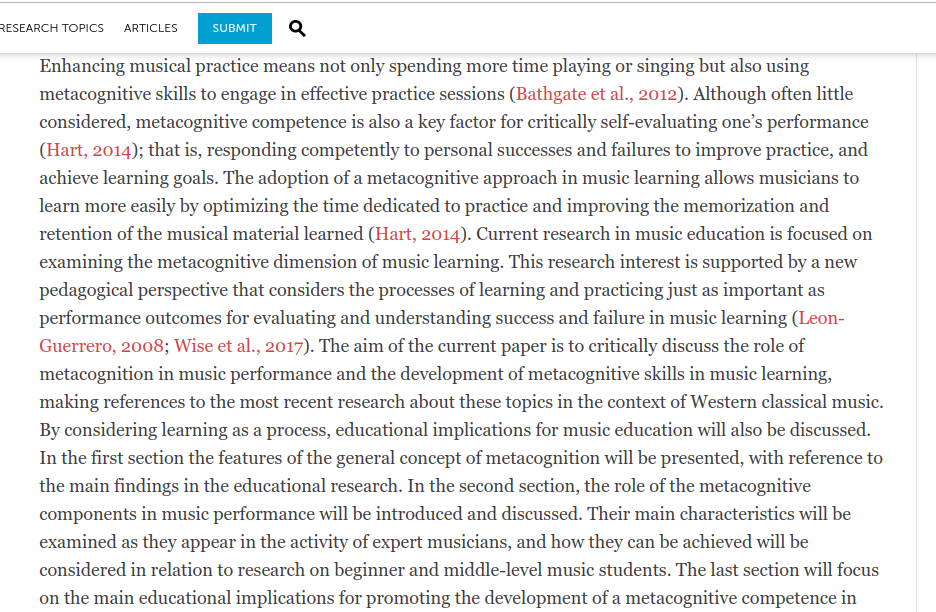
Instrumentation music is an expression of emotions and feelings within a song hence the importance of assessing the factors that foster the effective learning of the skills. In research by Meissner and Timmers (2019), it is established that the main issue that gears professionalism in the music industry is the ability to efficiently express personal perspectives. In this case, it is the duty of the individuals to ensure that the audience explicitly understands the message under the spectrum of entertainment. Expression in music is a two-fold concept encompassing lyrical composition and body language. According to Meissner and Timmers (2019), it is the responsibility of an artist to integrate both evocative aspects to showcase professionalism. Effective training in song composition, instrumentation, and performance depends on the interplay of metacognition and the essential values in the concerts.
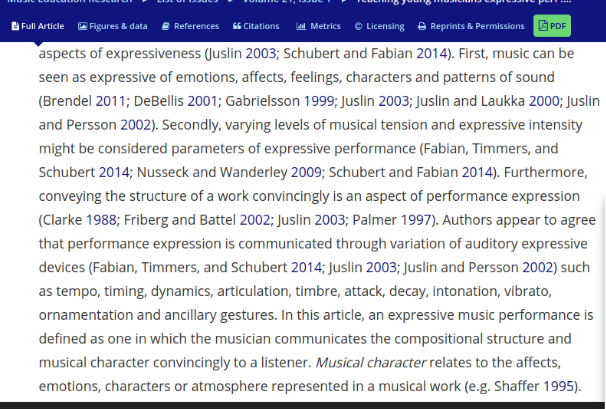
Musical Materials Suitable for Teaching Beginner Students
Teaching is a process that demands the strategic use of various approaches to ensure the optimal experience among the audience during a performance. There are different materials suitable for educating a trainee music student and mainly in the field of instrumentation. One of the prominent factors to consider during the studies by a novice is the essence of metacognition. Colombo and Antonietti (2017) fostered an observation on the training of a student by a piano instructor and noted that the trainer significantly utilized metacognitive strategies for effective studies and performance. However, the scholar established the lack of an indicative approach to showcase the exploitation of the concept. In this case, the researcher stipulates that one of the matters to consider during the teaching of music to starters is the resources addressing the exploitation of metacognitive strategies in song composition and staging.
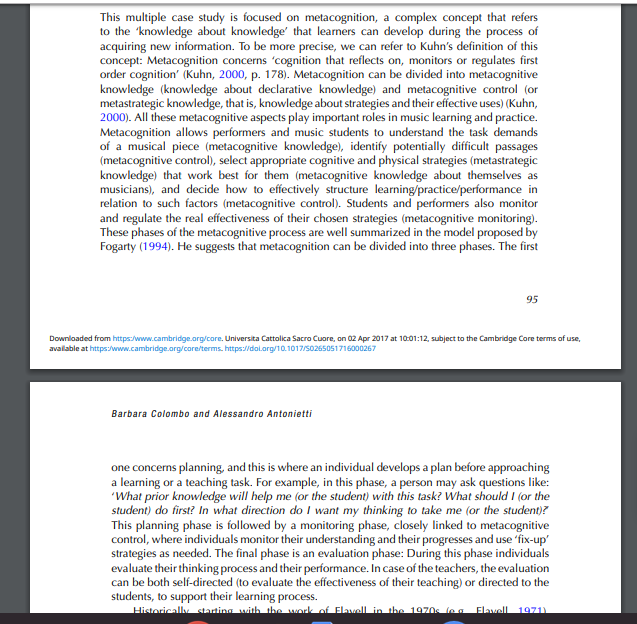
In a different spectrum, learning is an exercise that presents the optimal outline of establishing the necessity of music within schools and academic institutions. In research by Bokiev et al. (2018), the researchers realized that one of the major approaches to enhance student engagement is the use of songs due to its dynamic relief process. Singing is a practice that reduces anxiety, boosts memory retention, increases motivation, and improves the level of intelligence. The utilization of musical materials among beginners is a phenomenon that enhances the efficiency in the acquisition of knowledge and skills across different fields of study.
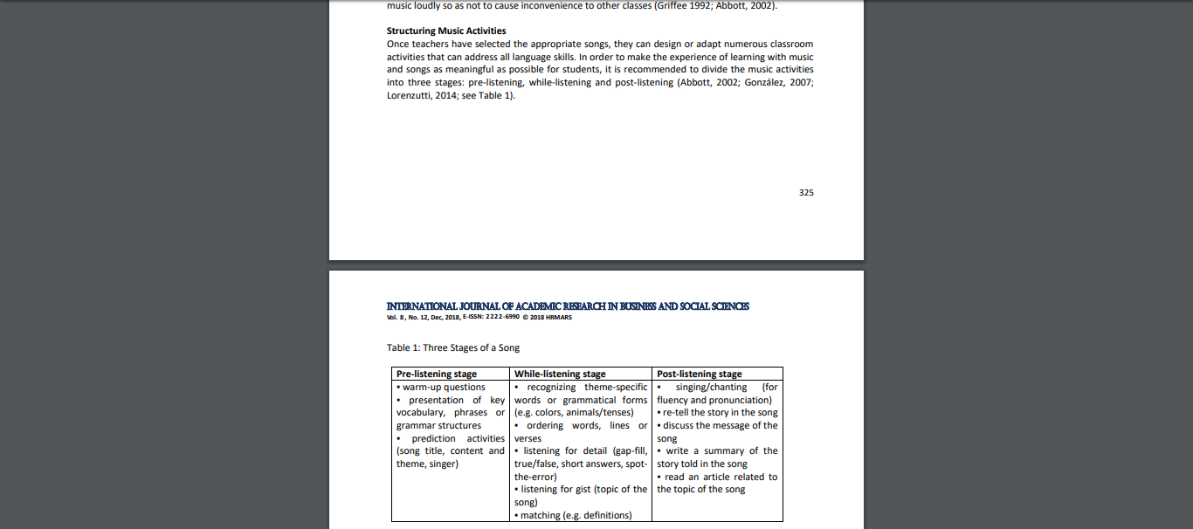
Music materials involving language learning are suitable for beginners due to the element of determining the integral meaning of effective acquisition of knowledge and skills. The main aim of studies entails attaining expertise within a particular framework for career growth and development. In this case, it is the responsibility of the teacher to seek resources that enhance the motivation of students and the concentration on the phenomenal essence of utilizing metacognition as a professional. An excellent example of the integration of concepts is the consideration of the emergence of hip hop and jazz culture among African Americans.
Music is an art that significantly impacts society due to the message communicated. One of the significant roles of music encompasses equipping individuals with the knowledge and skills such as instruments. In other cases, persons use songs as a form of expression regarding particular situations. In essence, the compositions play a massive role among people. An excellent example of the song that communicates an important message to society is “We shall overcome” by Pete Seeger (Mehring, 2017). Over the years, Black Americans have experienced discrimination due to racial affiliation, hence the necessity to protest for equality to the government. At one instance, Martin Luther King visited the Highlander school, and Pete, a popular folk singer performed the song in a different version. On the way home, Martin Luther King confessed to loving the song that later became a protest song among the African Americans. Originally, the song was sung by Reverend Dr. Charles Tindley in 1900 as gospel to praise God (Mehring, 2017). However, Pete Seeger changed a few lines in the hymn and it emerged as one of the remarkable songs across the world. Music is artistry that effectively communicates and unites the interests of people.

Musical Materials suitable for Teaching Elementary and Advancing Students
Proficiency in music is a necessity among students due to the contribution to memory retention. In a study by Montgomery et al. (2019), the researchers noted that a significant percentage of learners improved their mathematics grades after the integration of lyrical recitations of formulas. The authors foster the insight regarding the impact of songs within academics and the relative performance with minimal dependence rate on instructors’ guidelines. In this case, musical materials across different subjects enhance the proficiency among the teachers and the scholars in mastering the art of compositions and presentations for memory retention and acquisition of intelligence.
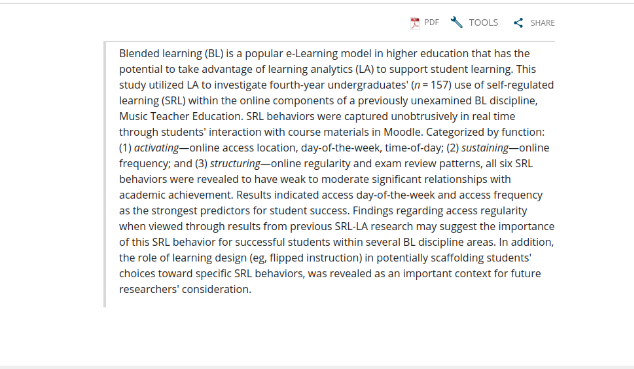
The integration of language learning contexts with musical recitations and compositions is another strategy that fosters effective studies among elementary and advancing individuals. Simmones (2019) depicts that it is efficient for scholars to understand and master vocabularies from foreign languages through singing due to the ability of memory retention. Primarily, the researcher focuses on the integral aspect of the different types of studies that encompass auditory, visual, kinesthetic, writing, and reading. An instructor fosters the acquisition of the skill in song compositions through the incorporation of recitations among the students as an effective approach. Therefore, the use of verbalization and vocalization is a vital aspect of promoting speech fluency and the artistry in music literacy through such concepts as tunes, harmony, and melodies.
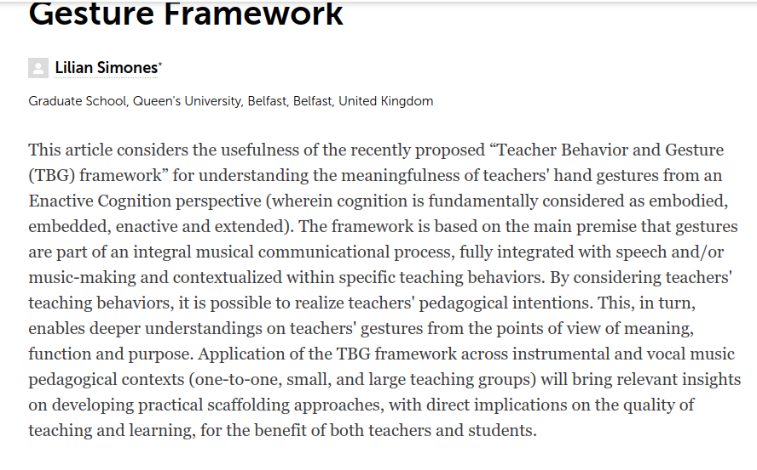
In a different spectrum, teaching instrumental music is a mainframe of dynamic variables such as learning the technology used in the industry and the relative factor of expression. Colwell et al. (2017) provide significant insight into the various elements that enhance effectiveness in the learning process. On the one hand, instructors must learn the different training strategies to enhance the students’ engagement. On the other hand, it is the responsibility of the institutions to replace and properly maintain the gear used in coaching. Productivity during the lecture sessions about song composition and the utilization of the accessories depends on the availability and accessibility of the resources. Therefore, Colwell et al. (2017) establish that key outliers for efficiency involve the exploitation of certain tiers. It is important to update the curriculum with the government’s provisions on the standards of the learning process. In this case, all individuals acquire highly competent knowledge and skills in the music industry.
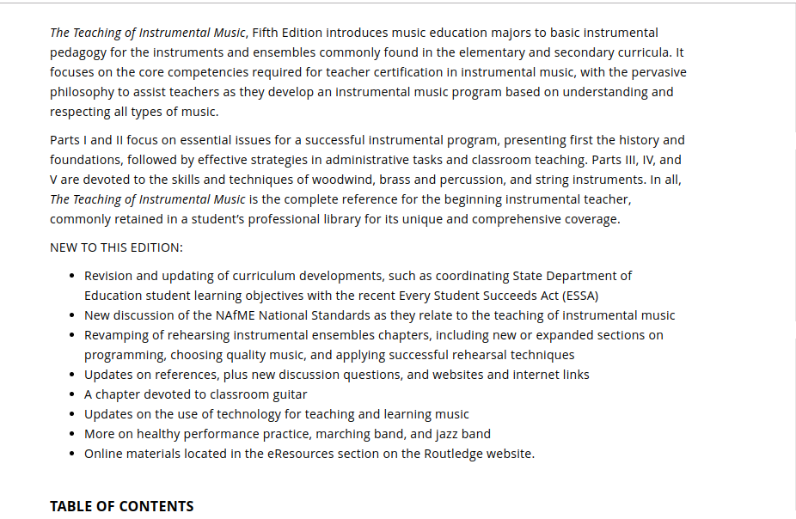
The primary role of musical studies involves steering a student’s utilization of metacognition for highly competent performances on stage. Colwell et al. (2017) agree that apart from the integration of different studies with song compositions and recitations, it is crucial to dedicate independent courses regarding instrumentations and the techniques in mastering the skill. Effective learning involves the integration of various variables to boost the quality of knowledge and intellect acquisition. However, it is also important to focus on independent concepts such as the training of guitar and piano plays. Unrelated melodies demand exclusive attention over certain frameworks such as mathematical academics (Colwell et al., 2017). Therefore, additional materials relevant for attaining expertise in musical instrumentation include the utilization of independent courses among the elementary and advancing individuals.
Small and Large Group Teaching Methods
Musical instrumentations vary based on the necessity of the composed songs. Different melodies demand various numbers of instrumentations for optimal expression and lyrical development. In this case, it is important for instructors to attain expertise and insight based on the relevance of either small or large groups. One of the teaching methods for both sects is silent reflection and communal coordination. On the one hand, it is crucial for individuals to articulate their contribution to the tuning of the composition. On the other hand, it is the responsibility of the coach to ensure that the persons coordinate their compositions to assert efficiency in the coherence (Julia et al., 2020). In this case, it is crucial for a teacher to ensure effectiveness in the learning process to boost the expertise among students. A trainer’s behavior is a reflection of the cognitive level and emotional intelligence hence the prominence in addressing the main issue of fostering effectiveness in the scholarly activity.
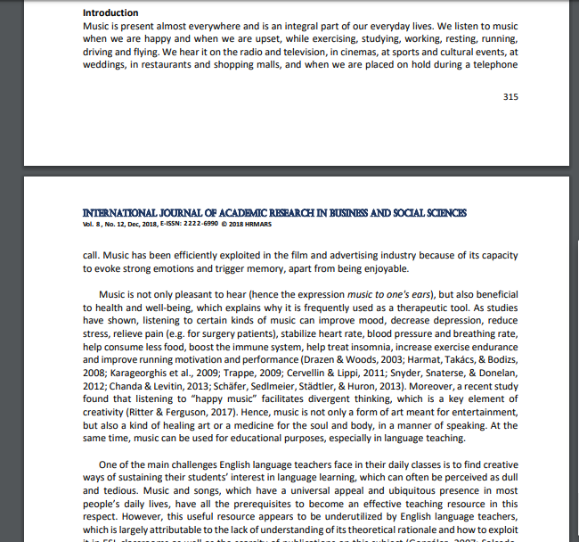
Another teaching method for small and large groups is the exploitation of rounds and at least four minutes each in the expression of the expertise. Although there is a wide range of musical instrumentations, the main issue that learners encounter involves proficiency in using certain accessories. It is an initiative that is geared by the use of individual assessment as well as the communal evaluation of the coordination in the lyrical flow and tuning. Bokiev et al. (2018), postulate that it is essential to incorporate such strategies as brainstorming. It is an approach that enhances the engagement among the students for song composition while attaining the necessary skill.
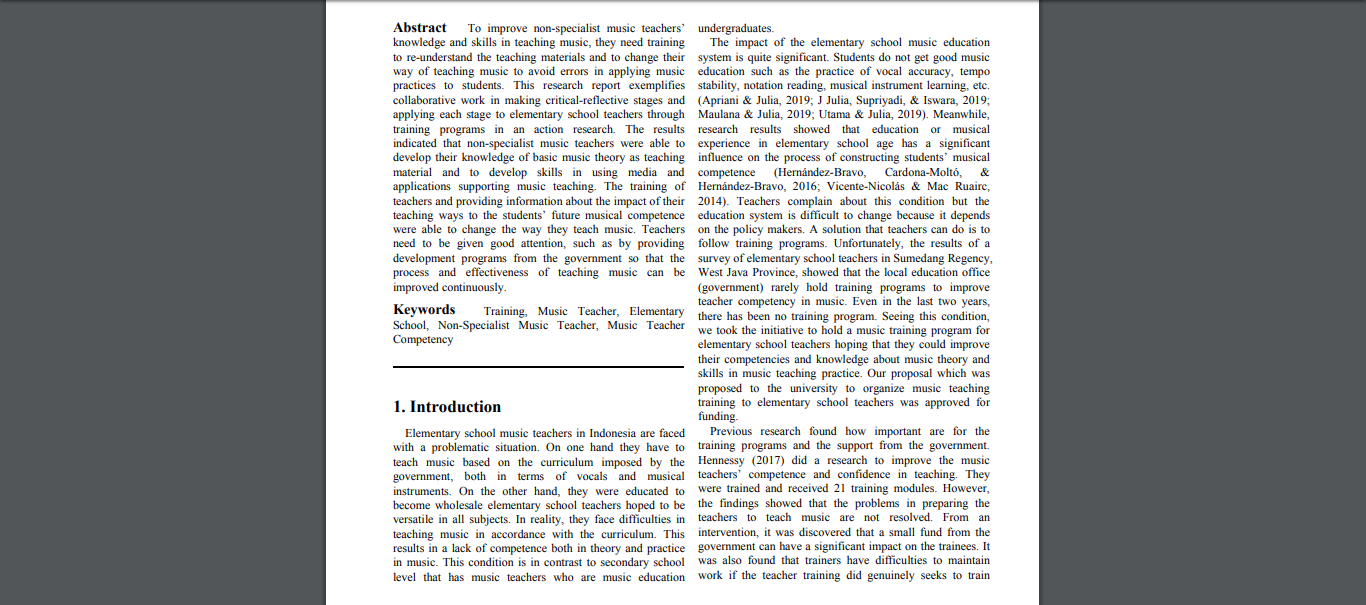
One of the major approaches to enhance student engagement is the use of songs due to its dynamic relief process. Singing is a practice that reduces anxiety, boosts memory retention, increases motivation, and improves the level of intelligence. Critical thinking is a phenomenon that spearheads the integral use of metacognition due to the evocation of ideas from reflective experiences and attained knowledge during the lecture sessions. Discussions fostered by the deliberations further empower the learners with the ability to enhance teamwork and promote effective sharing of information about musicology.
Primarily, effective learning is a multidimensional phenomenon that enshrines the utilization of different values of engaging students in academics. Montgomery et al. (2019) argue that small and large group coordination forge the avenue of independence in promoting self-reliance through brainstorming practices that involve the practical utilization of the acquired knowledge. In this case, the researchers further establish that another ideology that boosts the training process is snowballing. It refers to the ability to form pyramids of sects based on the tuning and the level of contribution of the instruments. In this case, the different clusters focus on mastering the provision of a melody that conforms to the composed song. Partnership among individuals within a batch proficiently utilizes metacognitive insights based on the performance, motivation, and strategy to boost expertise. However, Concina (2019) articulates that educational implications enshrine an exposure and provision of opportunities for persons to form associations for concerts and the composition of hymns. Snowballing is a pillar towards the enlightenment among the counterparts upon the achievement of the main goal in the industry that involves synchroneity.
Conclusively, small and large group teaching methods pose an optimal solution to the challenge in coordination and boosting the competence in musical instrumentations. In this case, it is the responsibility of instructors to incorporate the dynamic and relevant insights to enhance the performance outline. The interplay of these concepts forms the ideal framework that elevates the utilization of metacognition during the study process. The relationship between the educator and the students relies on the ability to focus on the teaching techniques compatible with the counterparts’ behavior.
References
Bokiev, D., Bokiev, U., Aralas, D., Ismail, L., & Othman, M. (2018). Utilizing music and songs to promote student engagement in ESL classrooms. International Journal of Academic Research in Business and Social Sciences, 8(12), 314-332.
Colombo, B., & Antonietti, A. (2017). The role of metacognitive strategies in learning music: A multiple case study. British Journal of Music Education, 34(1), 95-113.
Colwell, R. J., Hewitt, M. P., & Fonder, M. (2017). The Teaching of Instrumental Music. Routledge.
Concina, E. (2019). The role of metacognitive skills in music learning and performing: theoretical features and educational implications. Frontiers in Psychology, 10, 1583.
Julia, J., Supriyadi, T., & Iswara, P. D. (2020). Training the non-specialist music teacher: Insights from an Indonesian action research study. Universal Journal of Educational Research, 8(2), 547-558.
Mehring, F. (2017). We shall overcome? Bob Dylan, Complicity, and the March on Washington 1963.
Meissner, H., & Timmers, R. (2019). Teaching young musicians expressive performance: An experimental study. Music Education Research, 21(1), 20-39.
Montgomery, A. P., Mousavi, A., Carbonaro, M., Hayward, D. V., & Dunn, W. (2019). Using learning analytics to explore self‐regulated learning in flipped blended learning music teacher education. British Journal of Educational Technology, 50(1), 114-127.
Simones, L. (2019). Understanding the meaningfulness of vocal and instrumental music teachers’ hand gestures through the teacher behavior and gesture framework. Frontiers in Education, 4, 141. Web.